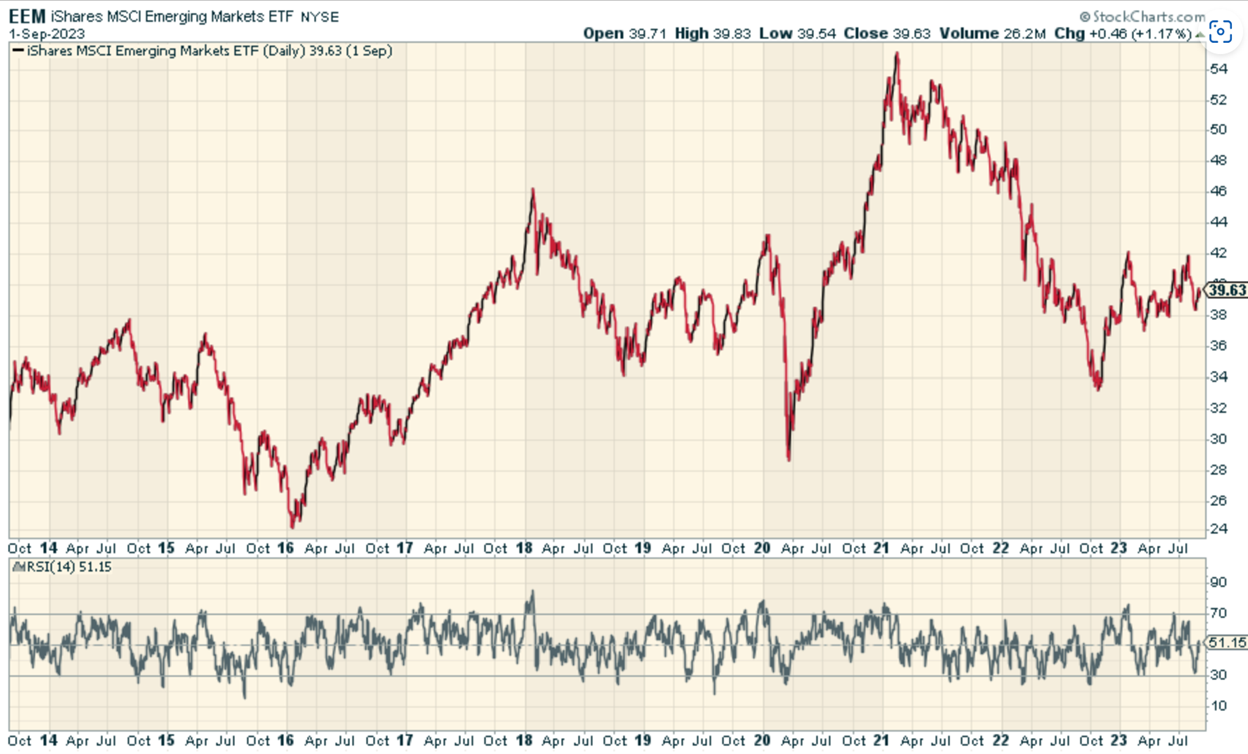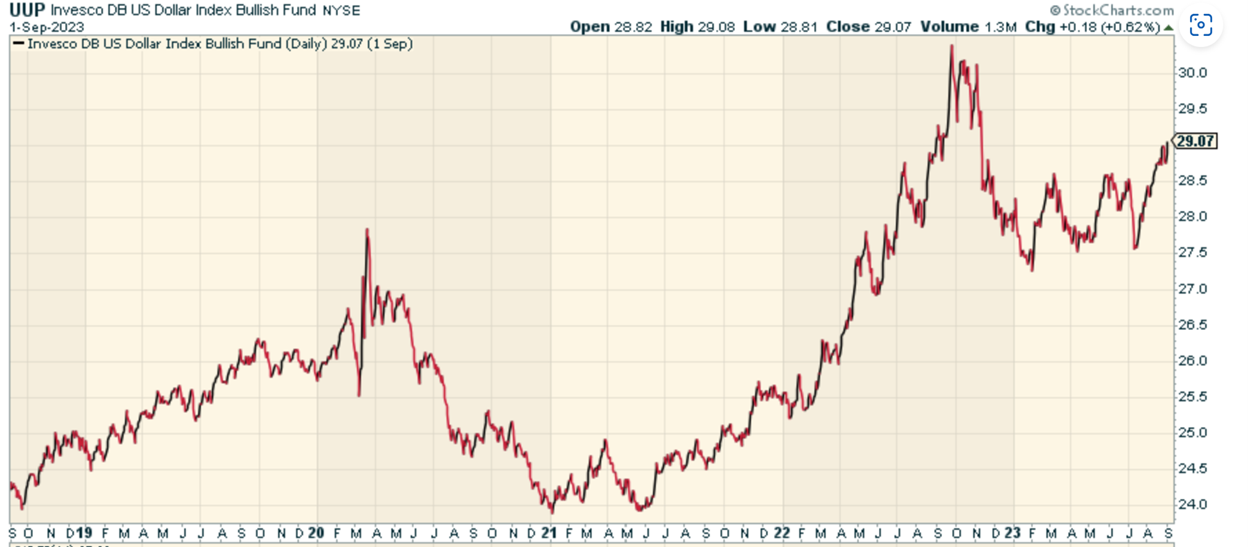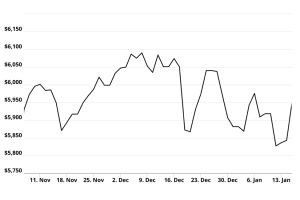
What in the world is it going to take to break U.S. dominance and for emerging markets to run again in a sustained way?
For well over a decade, emerging market stocks have been what I often call “volatile cash.” They’ve gone absolutely nowhere for a long time, and every time it looks like they want to run, momentum trading fails miserably. Death by a thousand cuts is the only way to really describe it.

Is there any argument to be made that now is the time consider investing overseas? I think so, with a bit of patience and a little bit of luck.
The Case for Emerging Markets Stocks Now
Why? First, the fundamental case for emerging markets stocks is compelling. If we look at the iShares MSCI Emerging Markets ETF (NYSEARCA:EEM), all valuation metrics look appealing. This shouldn’t be such a surprise. Stocks outside the U.S. have had poor performance while many of the companies in the fund have grown their bottom lines.
Currency dynamics play a critical role in the performance of emerging markets as well. A weakening U.S. dollar, for instance, can provide a tailwind for these markets. When investors recognize the potential for economic recovery in other regions, such as Europe and the United Kingdom, and the possibility of a “soft landing” in the U.S., currencies of emerging markets may outperform and accelerate over time. This presents opportunities for investors. The dollar is still strong for now, but it’s only a matter of time until that reverses.

Emerging markets are not just about high-growth economies. They also encompass maturing economies that offer stability and robust growth prospects. Structural reforms in several emerging market countries have started to yield results, leading to lower debt-to-GDP ratios and increased economic stability. The structural reform process can initially slow down economies, but the benefits usually manifest later, suggesting that these reformed economies are now poised for growth. Countries like Indonesia, which has successfully navigated several elections without any significant disruptions, exemplify the potential of such maturing economies.
Emerging markets are poised to offer strong growth opportunities. The growth of the middle class and increasing demand for products and services make for a compelling long-term argument. None of this has changed. If anything, time has only made these dynamics more entrenched, especially as growing middle classes outside the U.S. demand better food, clothing, and in general, a better life through increased productivity and growth.
The Bottom Line
The long-term case for emerging markets stocks remains strong, and the short-term valuations look compelling. None of this tells us anything about timing.
I’ve noted on that emerging markets are an area to focus on after a credit event takes place as I suspect these parts of the marketplace would disproportionately be hurt. Having said that, don’t discount the possibility that the next decade could look very different.
It’s been a brutal period, but conditions do change, and I suspect that there will be some big opportunities here.
On the date of publication, Michael Gayed did not hold (either directly or indirectly) any positions in the securities mentioned in this article. The opinions expressed in this article are those of the writer, subject to the InvestorPlace.com Publishing Guidelines.




